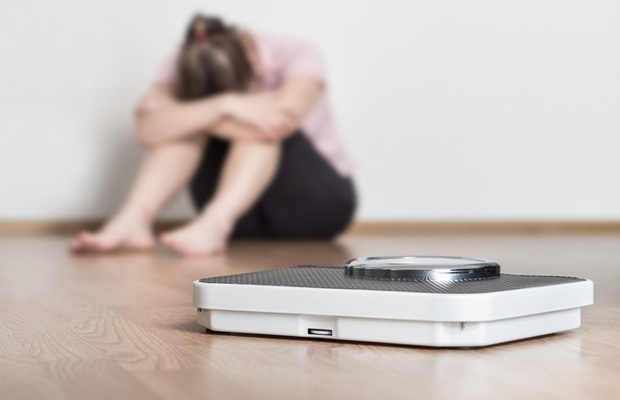
Eating disorders can be defined as psychological problems linked to concerns about eating, body image, exercise, body shape and weight.
According to Recovery Space, a website devoted to resources for eating disorder recovery, individuals affected by eating disorders tend to be preoccupied with their eating and exercising habits, and how these affect their body shape and weight.
Eating disorders are not only limited to anorexia nervosa and can be hard to diagnose, and even harder to treat. According to Dewald Louw, a counselling psychologist at Montrose Manor, an eating disorder treatment facility in Cape Town, treatment in South Africa is especially hard as most medical aids will only cover 21 days, and many months of treatment as an inpatient are needed to treat an eating disorder successfully.
Here are five common myths that stigmatise eating disorders:
1. Eating disorders are a choice
"They are not. They are complex. They are actual diseases which cause a lot of distress," says Lauren Aron, a registered social worker at Montrose Manor in Cape Town. There is a strong notion that those suffering from an eating disorder should simply start eating. It's not that simple. According to Aron, eating disorders take up a lot of "headspace", which is emotionally exhausting. "It can take over large chunks of your life and interfere with your daily functions."
Eating disorders are classified and treated as mental disorders and a patient simply can't "snap out of it". There are certain biological markers such as a dysfunction in serotonin and dopamine levels that can determine the behaviour and thought patterns in a patient with an eating disorder.

2. Parents cause eating disorders
"There is absolutely no research indicating that eating disorders are intrinsically linked to problematic relationships with parents or that parents are the main cause," says Louw. There might be a history where the parents had an eating disorder or substance abuse problem themselves, but this doesn’t mean that parents are fully responsible for children's eating disorders.
Parents should, however, play a role in creating a healthy recovering environment by taking the focus away from food and weight and encouraging a positive body image from a young age, says Aron.

3. Eating disorders are not that serious
According to Louw, eating disorders have the highest mortality rate of any psychiatric disease. Besides all the physical medical complications linked to eating disorders such as organ shutdown and heart failure, suicide remains a huge risk in a patient suffering from an eating disorder.

4. An eating disorder is a 'girl thing'
Eating disorders were always regarded as an illness occurring mainly in females in Western society. This perception is changing as eating disorders are becoming increasingly common in males.
A study based on the body image of young boys has revealed the shocking statistic that 33–35% of boys between the ages of six and eight aspire towards a thinner body. The same study mentions that since the 1980s there has been a heightened perception of the "ideal" male body, as more scantily clad male models started appearing in advertisements. Additionally, the measurements of the male action figures young boys play with exceed even those of the biggest bodybuilders, giving young boys a skewed view of how they should ideally be built.
The presence of eating disorders among boys and men who participate in sport is especially strong. Eating Disorder Hope states that 45% of males who suffer from anorexia nervosa are involved in competitive sport.

5. Anorexia is the only deadly eating disorder
Bulimia can be equally deadly. Using laxatives to purge can cause a dangerous electrolyte imbalance in the body that can damage the heart and cause sudden heart failure. Persistent malnutrition can damage organs such as the kidneys, which can lead to severe kidney infections or even kidney failure. The Eating Disorders Association (UK) estimates that 10% of bulimics die as a result of their bulimia.
The danger doesn't stop at bulimia. Binge eating disorder (BED) can also be fatal as it can lead to health problems, such as heart disease, diabetes, high blood pressure, high cholesterol and other chronic issues when left untreated. According to the DSM-5, other eating disorders include rumination disorder, the regular regurgitation (spitting up and rechewing) of food; Other Specific Eating or Feeding Disorder (OSFED), where all the criteria for an eating disorder, except weight loss, are met; and Unspecified Feeding or Eating Disorder (UFED), where eating behaviour causes distress, but not yet enough to be classified as one of the other eating disorders.
All patterns of disordered eating can eventually lead to health problems if left untreated.

Image credit: iStock




 Publications
Publications
 Partners
Partners










